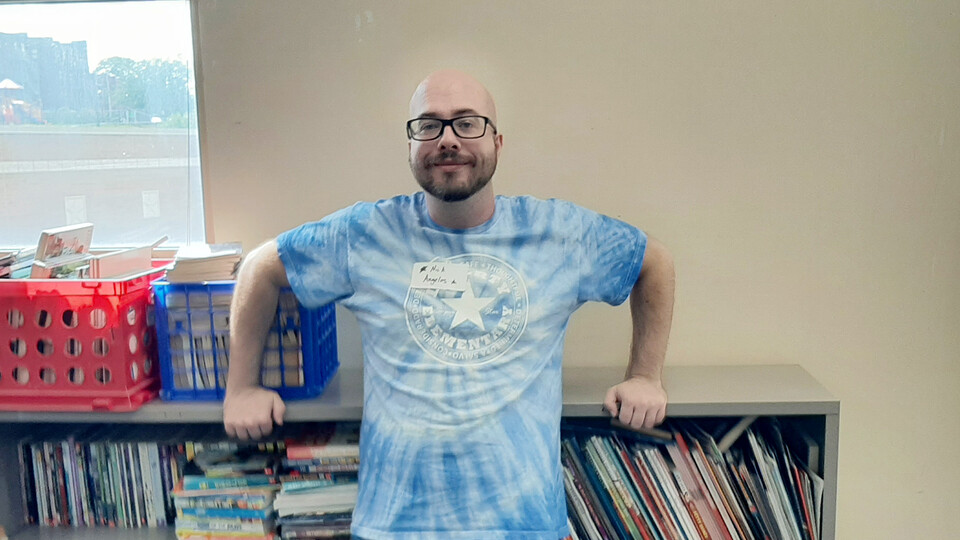
Partnership helps master’s graduate move into new teaching career
11 Aug 2023 By Kristina Jackson | University Communication and Marketing
Nick Angelos made a career change right before the rest of the world changed, too.
Now, he’s taking the next step on that new path.
Angelos, who will graduate from the University of Nebraska–Lincoln with his master’s degree Aug. 12, found stability working in Omaha Public Schools as a paraeducator. Through the Paraeducator-to-Teacher program offered by the College of Education and Human Sciences, Angelos has taken the lead in his own classroom and put his practical experience to use for his students.
“It does feel a lot more rewarding being able to have my own room and tailor things to what I think the students need,” he said.
The Paraeducator-to-Teacher partnership between Nebraska and Omaha Public Schools provides a path for paras to earn their teaching certificates and a master’s degree in a compressed timeline. It’s aimed at paras who already have bachelor’s degrees and who continue to work full-time. OPS covers all expenses.
Angelos received his bachelor’s degree in English with a minor in theater and previously worked in production, helping stage live events. He started working as a para in January 2020 for a more reliable source of income. When his first semester with the district was upended by the COVID-19 pandemic a couple months later, he took professional development seminars online to keep his skills sharp.
“When COVID happened, my production work wasn’t really paying me anymore, but Omaha Public Schools kept me employed,” he said. “So I felt a really big sense of gratitude and that’s what kept me in it.”
Angelos enrolled in graduate school in summer 2021. Along with its steadier employment and better pay, he saw the transition from paraeducator to teacher as a chance to advance both his education and his value to the community.
“I’ve always been a big believer that the second you think you’re done learning, you need to the most,” Angelos said. “I’ve always believed I need to keep learning, no matter what.”
Angelos took over his own classroom at Liberty Elementary School in Omaha during the spring 2023 semester, and he said his experience as a para offered real-life examples for how to handle things in the class. He said having hands-on experience in the classroom is necessary to understand how a classroom works.
“Being a para, you get to see a lot of different classroom dynamics,” Angelos said. “It gave me the opportunity to see how a bunch of different teachers approach certain situations. It let me kind of pick out certain things I thought would work for me.”
Angelos looks forward to instituting some of the work he did for his capstone project into his classroom. His project examined the importance of giving students more opportunities to be physically active during the school day. He bought some bike pedals that fit under desks to give the kids an outlet for their energy.
“Students often don’t have those opportunities to use their energy and exercise the body, instead of just the mind,” he said.
After setting on a new path, Angelos enjoys the consistency of his new career over his previous one.
“You couldn’t even guarantee you were going to sleep in the same state from one day to the next,” he said. “Consistency is king for the kids, and going from a job where I didn’t have that consistency, I’d like to think I can appreciate it just as much as they can.”
College of Education and Human Sciences
Teaching, Learning & Teacher Education
Strong Communities